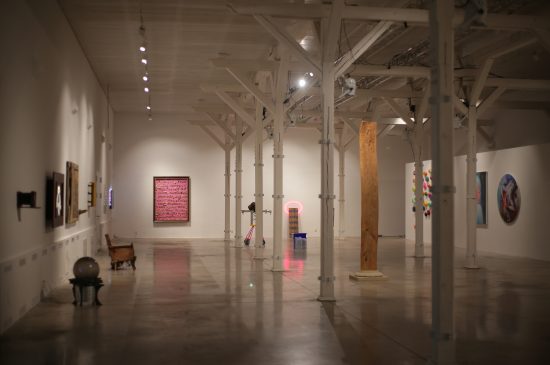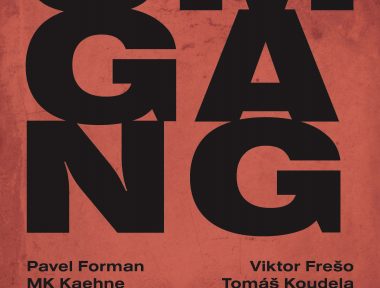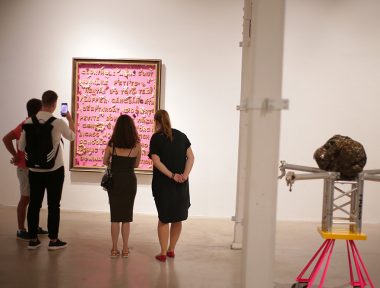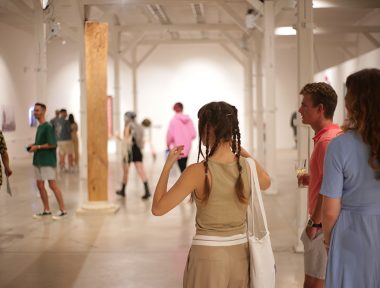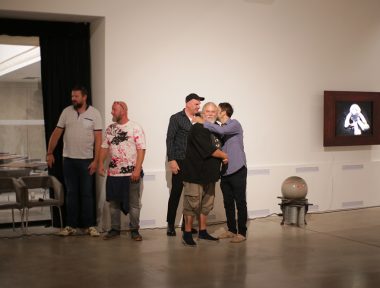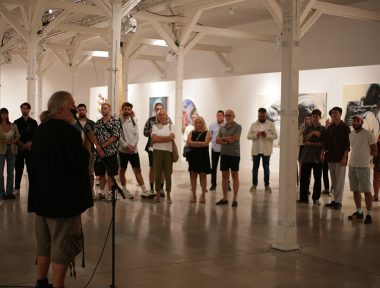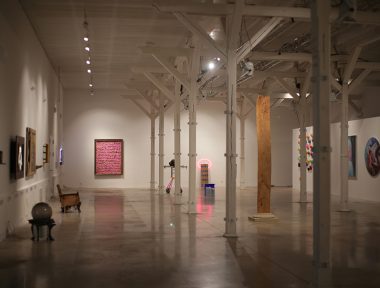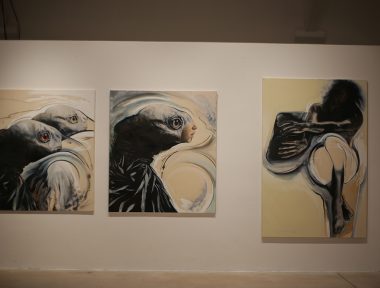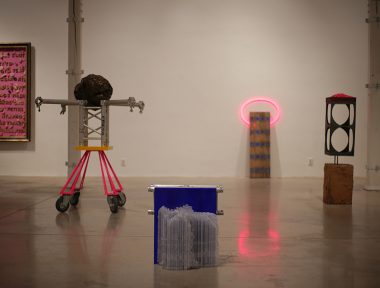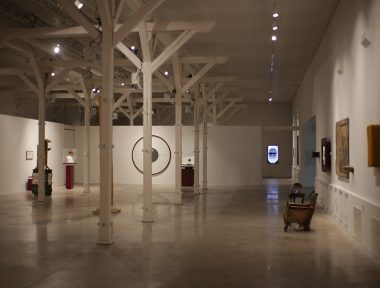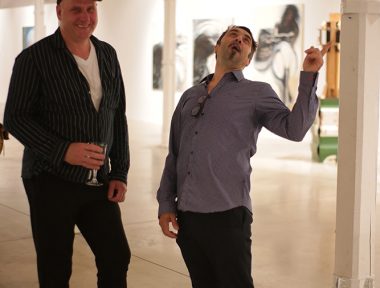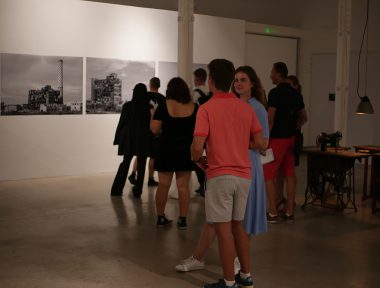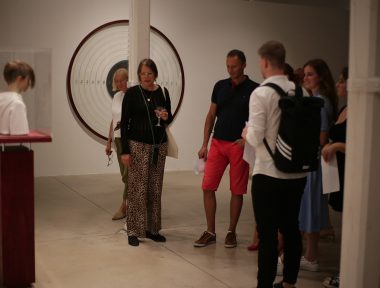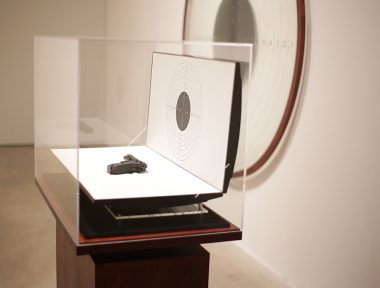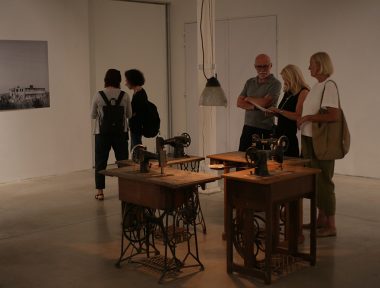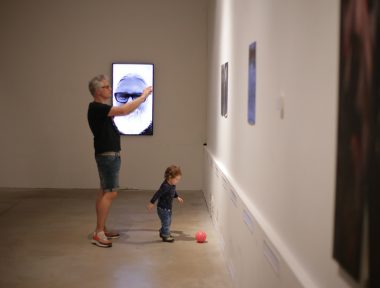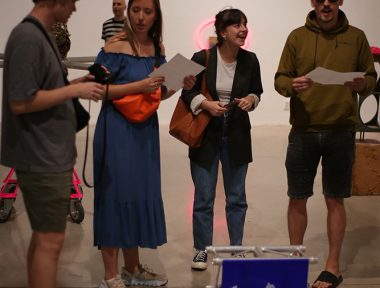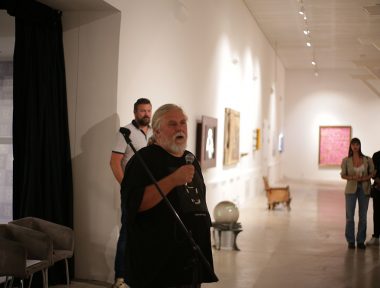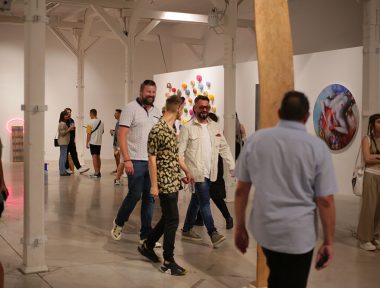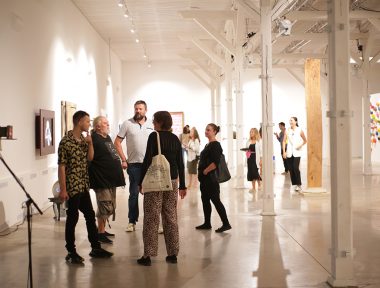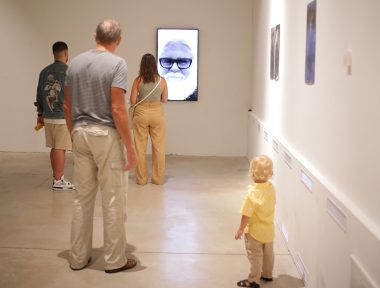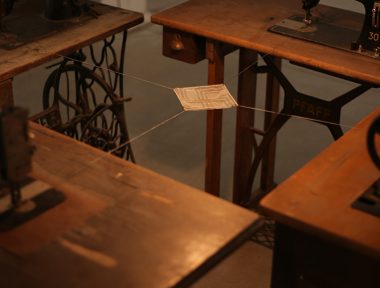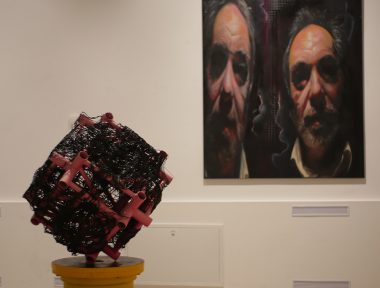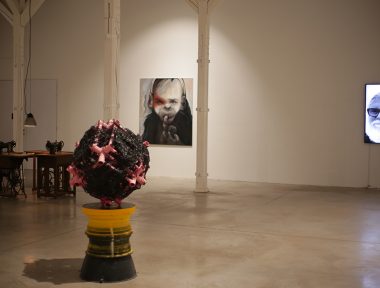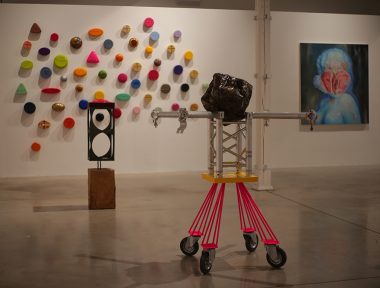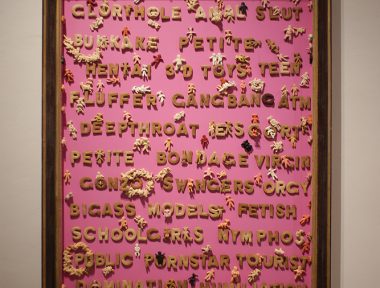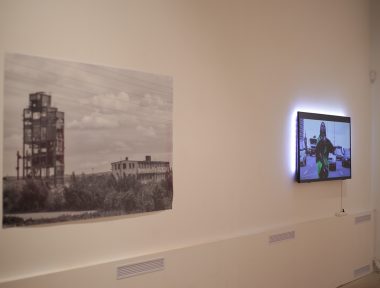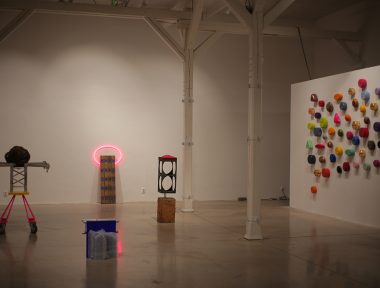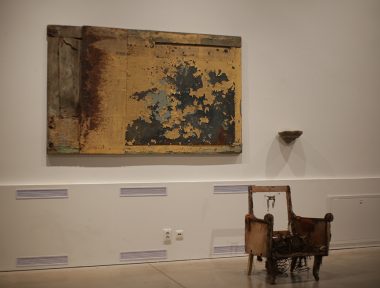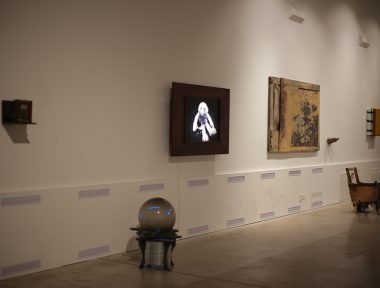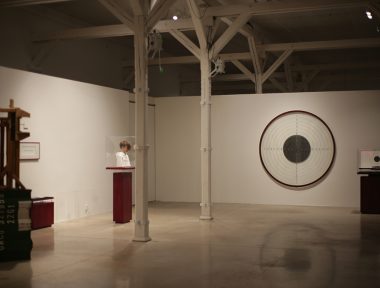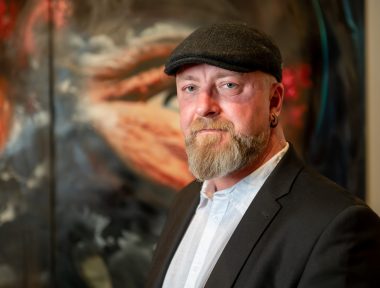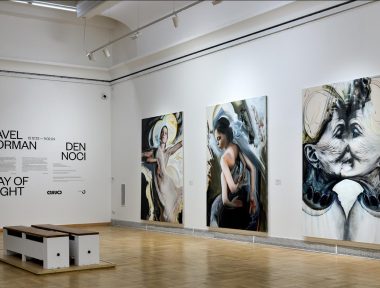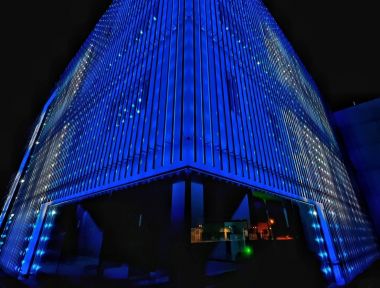The international exhibition project Umgang was created thanks to the cooperation of several Czech, Slovak, German, Austrian and Polish artists. The entire event in the Kasárne/Kulturpark gallery in Košice is produced and organized by the Center for Visual Studies PdF OU in cooperation with VUNU Gallery.
Artists: Pavel Forman, Viktor Frešo, MK Kaehne, Tomáš Koudela, Robert Kuśmirowski, Honorata Martin, Marek Schovánek, Elena Steiner
Production and graphic design: Tereza Čapandová, Nikolas Bernath
Text for the exhibition
We long to be together, with others. We long to decide for ourselves when and how we will do so.
Untill now, this fact has seemed not to be worth mentioning. It could hardly be a topic for an exhibition, but suddenly it is different.
The average comprehensiveness of a language reveals the being of residence as dealing with the world on the everyday level. It is not about deeper understanding, we only understand roughly, there is no essential connection to what is being discussed.
The repetion and dissemination of speech empowers the authoritative forms of language over its meaningful content. The average language disponent authoritatively distributes understanding to the world without the need to treat it adequately, content with indifferent comprehensibility. A language disponent, striving for true understanding, treats the world with all seriousness to understand it in the intentions of itself as coexistence.
The dealing guarantees the general facticity of realization from an ontologically structural point of view as a transfer of existence in being. Being in the world as dealing with existence is care, provisioning, and inner worldliness of a being as residence – caring for others.
The art of living together. Truth as an attempt to stick to the path of understanding the world. To understand the world is a true dialogue between subjects and objects of the world.
“If something can be known by the effort of reason in its quality and in its empirical facticity even against the appearance of sense perception, then the assertion of something false is clearly the result of a careless use of reason“[1]
„The primary task of the intellect is not knowledge, but understanding.“[2]
What is a lie? An effort to escape collapsing into itself and engulfing the sensory world. The inability to live an ideal life in real time. The void between subject and object. Denying the ability to get along with each other, to be together.
„Whoever lies about something distances himself from the mechanism of reality and, by negating it, experiences himself as an I who wants, often against any obviousness, to decide for himself what is and what is not. In this way, a person creates that distance from the world, which then continues in the aesthetic schedule of completely different, fictitious worlds.“[3]
…singularity and dematerialization present as subscedences[4] of each of the other possible variations of ontological dualism [5], … ghostly hyperobjects, beyond whose border lurk the barely visible outlines of no less phantom hypersubjects.
The art of living together, a dialogue between my self and the other self. Movement through the interdimensional space, infinitesimal vibrations. The art as a participation of this escape, as a harmony of neutral ego-gestures on the one hand and the implosion of ego-energy on the other, medium of understanding and empathy.
PS: „In a political sense, the word Anthropecene thus heralds the reversal of the era of neutralization and depolicization in the era of (re)polizitaition of everything. Everything in the Anthropecene epoch is dependent on the globally binding political decisions of humanity.“[6]
Author of the text for the exhibition: Tomáš Koudela
[1] Konrad Paul Liessmann. Filosofie zakázaného vědění Friedrich Nietzsche a černé stránky myšlení. Praha: Academia, 2000, pg.47.
[2] Ibidem, pg. 21.
[3] Ibidem, pg. 48.
[4] Compare: Václav Bělohradský. Čas pléthokracie. Praha: 65. pole, 2021, pg. 344.
[5] Compare: Jean-Paul Sartre. Bytí a nicota. Praha: Oikoymenh, 2006, pg. 89.
[6] Václav Bělohradský. Čas pléthokracie. Praha: 65. pole, 2021, pg. 311.


 3 min.
3 min. 